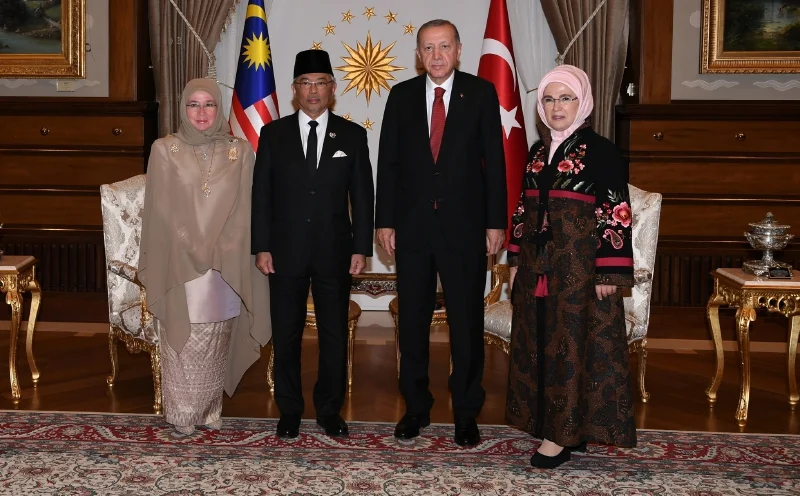Food is one of the basic needs of all life. In addition, food is also a security issue for a country. It should be emphasised that the concept of security is not limited to the military and weaponry but extends to all aspects of life. This is in line with human security, which is concerned with the safety and protection of individuals and is not limited to the country.
The concept of human security was introduced in the 1994 UN Human Development Report entitled ‘The New Dimension of Human Security. This report has given a new interpretation to the concept of security by emphasising people over territory and weapons development. Among the pioneers of human security is Mahbub ul Haq, an economist and development expert from Pakistan. This concept was further strengthened by the statement and call of the UN Secretary-General, Kofi Annan, in September 1999 on human security and has opened a new perspective on security. Seven points are emphasised: economic security, food security, environmental security, health security, community security, personal security and political security.
Food security includes food availability and individuals’ ability to access it. According to the United Nations Committee on World Food Security, food security is access to sufficient, safe and nutritious food for all people to meet their food preferences and dietary needs. In addition, food security also means the availability of food regardless of class, gender or region.
The concept of food security is not new because it was discussed during the World Food Conference in 1974, which defined food security as the availability at all times of an adequate, nutritious and diverse world food supply and ensuring a stable food supply. Additionally, the Food and Agriculture Organization of the United Nations (FAO) identifies the four pillars of food security: availability, access, consumption, and stability.
Malaysia, famous for its variety of cuisines, is now facing the challenge of food shortages. In 2021, Malaysia ranked 39th out of 113 countries in the global food security index (GFSI). The ranking is measured based on food affordability, availability, quality and safety, including a country’s resilience to the effects of climate change. Malaysia ranks eighth in the Asia-Pacific region and second in Southeast Asia after Singapore. It should be emphasised that Singapore has minimal natural resources, and only one per cent of the total area cultivated for food production can ensure a sufficient food supply for its people. Compared Malaysia, which is rich in natural resources and extensive land use for food production, is still faced with the challenge of providing food.
The cause of the problem of food shortages, as well as the increase in food prices, is the dependence on external sources. Malaysia imports almost 60 per cent of its food needs. As a result, food safety is a significant issue. In 2019, Malaysia only produced 46 per cent of its vegetables, 70 per cent of its rice, 61 per cent of its fruits, 25 per cent of its beef, 11 per cent of its mutton, and 5 per cent of its dairy needs. The total food import in 2020 is RM 55.5 billion. While in terms of land use for agricultural purposes, five million hectares of land are cultivated for palm oil cultivation and 1 million hectares for rubber cultivation.
In comparison, only 1 million hectares are used for food production, cultivated mainly by smallholders. Malaysia moved towards an industrialised country in the 1990s, but this does not mean that the agro-food unique agricultural sector is neglected. Malaysia should have an efficient agro-food industry to ensure sufficient food resources throughout the year and reduce dependence on external sources.
The war between Russia and Ukraine is one reason for the increase in food prices. Almost 30 per cent of the world’s wheat supply and 20 per cent of corn comes from Russia and Ukraine. Meanwhile, Belarus is the leading potash producer, a chemical used as fertiliser. It should be emphasised that the World Food Program of the United Nations has warned that the war in Ukraine has resulted in the most severe agricultural crisis since the Second World War.
In addition, before the outbreak of war, the global food supply chain was affected by movement control to face the challenges of the COVID-19 pandemic. In addition, the next challenge is natural disasters, such as droughts and floods. Disruptions in supply chains have increased transportation costs and commodity prices. The conflict in Ukraine will only increase global hunger and poverty and worsen inflation.
Therefore, the Malaysian government and the private sector should develop the agro-food industry in line with the development of the Fourth Industrial Revolution, 4IR, or Industry 4.0. Malaysia should emulate countries such as Japan, the Netherlands, South Korea and Germany that have been using the latest technology in the agro-food industry for a long time. In addition, the national education system should encourage young people to venture into the agricultural sector to become modern entrepreneurs and farmers.
[Photo credit: BERNAMA]


